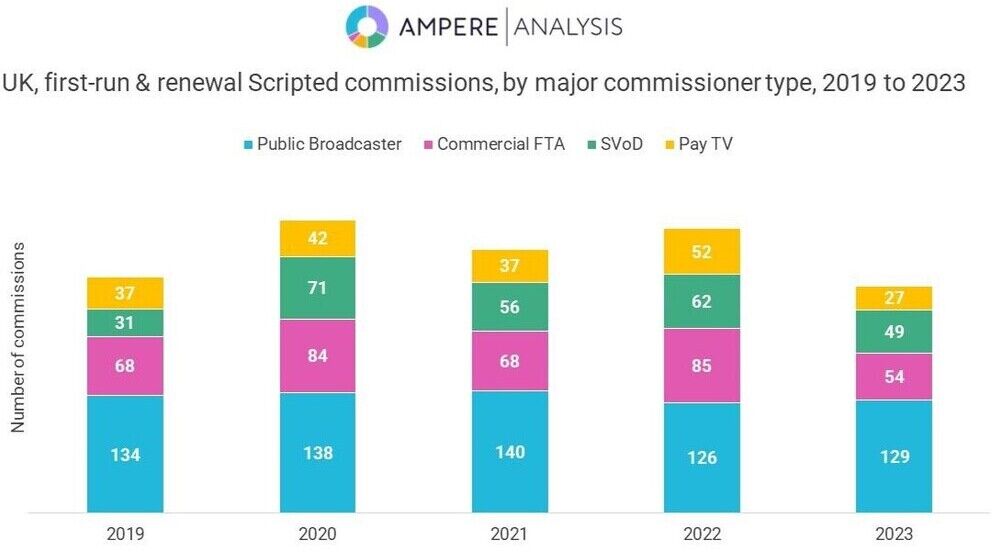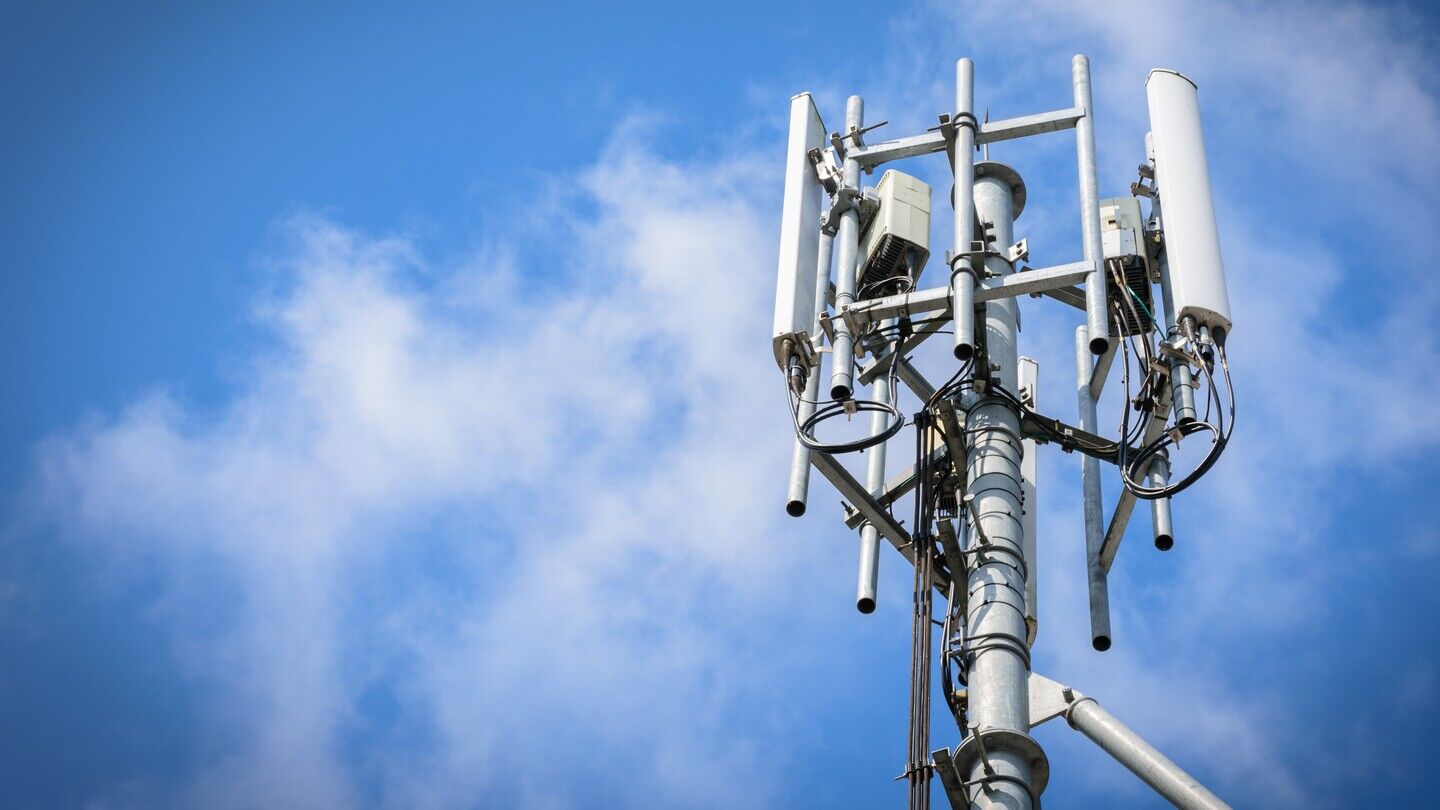The BBC commissioned half of all scripted content in the UK last year, according to a new report by Ampere Analysis.
The report found there was an 18% decline in scripted TV commissions in the UK in 2023 as major broadcasters cut spending and most global SVODs trimmed investment in international content.

It said that changes in consumer behaviour and a weak advertising market saw pay TV operators and commercial free-to-air broadcasters slash scripted commissions. UK scripted commissioning activity fell by 48% at local pay TV operators, 36% at commercial free-to-air broadcasters, and 21% at SVoD services.
However, the BBC’s scripted commissions remained stable with the public service broadcaster focusing on kids, family and crime genres and ramping up literary adaptations and multiple-episode series orders.
As other players reduced their scripted commissioning activity, the BBC managed to maintain constant levels, increasing its share of UK scripted TV commissions to 50% last year.
This is despite the broadcaster announcing a raft of cost-saving measures last year in response to the license fee freeze and wider economic pressures. One of the actions was to cut 1,000 hours of original programming annually and trim spending on original content. However, the impact of these reductions has initially been felt by reductions in cheaper-to-produce unscripted programming.
As the BBC tackled budgetary pressures, Ampere pointed to changes in its scripted commissioning strategy during 2023. Children and family grabbed the most orders of the BBC’s scripted commissions, up by 23% year-on-year. Crime and thriller titles were up 16%. Comedy fell out of favour, enduring a 27% drop. It was the most heavily impacted of all scripted genres in 2023 with an overall decline of 41% among UK commissioners. Roughly a fifth of BBC scripted commissions last year were book adaptations.
Ampere said that 13% of the BBC’s scripted commissions ordered were co-commissions with other broadcasters. Co-commissions involve trade-offs around control of rights, but may offer cost-efficiencies. German broadcaster ZDF uses co-commissioning more extensively, with over 30% of its scripted output co-commissioned.
Zuzana Henkova, Senior Analyst at Ampere Analysis, said: “As media consumption patterns continue to change, commissioning strategies are evolving. While commercial operators and broadcasters adapt to pressures on consumer spend and a tough advertising landscape, public service broadcasters have maintained their commissioning activity. This is undoubtedly one of the strengths of the public funding model. As all broadcasters look for new ways to optimise their output, we expect to see the BBC continuing to explore partnerships and co-commissioning to stretch budgets for valuable – but expensive – scripted commissions.”
You are not signed in
Only registered users can comment on this article.

WBD mails definitive proxy statement to finalise Netflix merger
Warner Bros. Discovery (WBD) will hold a special meeting of shareholders to vote on the merger with Netflix on March 20, 2026. In the meantime, WBD has begun mailing the definitive proxy statement to shareholders for the meeting.

Sky's talks to acquire ITV slow down
Talks by Sky to acquire ITV’s broadcast channels and streaming platform have slowed in recent weeks, according to a report by Reuters.

Bytedance pledges to rein in Seedance AI tool
Chinese technology giant ByteDance has pledged to curb its controversial artificial intelligence (AI) video-making tool Seedance, following complaints from major studios and streamers.

Digital switch-off prospect nullifies Arqiva’s value
Arqiva’s main shareholder has admitted that its holding of the transmission company might be worth nothing.

Warner Bros Discovery mulls re-opening sales talks with Paramount
Warner Bros Discovery is considering reopening sale talks with Paramount Skydance Corp, according to a Bloomberg report.




